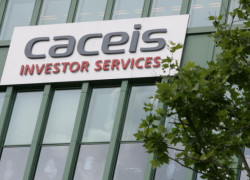PwC Luxembourg - Turning BEPS challenges into opportunities. Luxembourg to play its trump cards
With concerns over base erosion and profit shifting (BEPS) having reached the highest levels of governments and with an on-going focus by the media on the perceived international tax avoidance techniques of multinationals, the debate on BEPS is being led by the Organisation for Economic Cooperation and Development (OECD).
Luxembourg will need to think hard about cutting its overall corporate tax rate, which at 29.2% now looks high, even if this implies that the taxable basis will need to increase. Just as important will be the personal income tax regime, where the top rate has risen from 38.95% to 43.6%
Wim Piot, Tax Leader at PwC Luxembourg
Making sure that profits are taxed where value is created
On 19 July 2013, the OECD issued its much-anticipated Action Plan on BEPS, with a view to bringing in line international economic integration and national taxing rights. The 40-page Action Plan contains 15 separate action points, some of which are further split into specific actions or outputs. The Plan aims to address these issues in a coordinated, comprehensive manner, and was endorsed by G20 leaders in September 2013.
While it may take considerably longer for the impact of these changes to be fully applied in practice, there are indications that the BEPS project and related developments are already leading to a material shift in the behaviour of tax authorities.
The first task in the Action Plan is to produce a report on the digital economy, and the whole question of where 21st century business should pay tax on its profits, when these arise from complex supply chains or functions spread over several countries. Going beyond the digital economy, the Action Plan commits the OECD to re-working its standards.
“Particularly assertive challenges are coming where structures using companies without any real substance are found – such entities are now much more often being argued to be resident where they are in practice operated from, says Wim Piot, partner, Tax Leader at PwC Luxembourg. The Action Plan carries a recurring message - taxable profits must always belong mainly where the real economic value-adding functions within the business are carried out.”
Turning challenges into opportunities
Over the last 20 years Luxembourg has become hugely important for many multinational groups, which use Luxembourg to manage their internal financing and holding operations, as do most of the large private equity and real estate investment funds. Also, some of these groups and funds already have very significant corporate headquarters functions here to manage these functions. Many others now operate increasingly active offices, because the level of support needed to run financing and shareholding operations and investment/disinvestment functions have grown as these become more complex.
“The contribution that this type of business makes to the Luxembourg economy has grown quietly but significantly in recent years, adds Caroline Goemaere, BEPS Leader at PwC Luxembourg. To lose all, or even a significant part, of this business would thus be damaging to the Luxembourg economy – the loss of tax revenue would not just come from the corporate taxes that the holding and financing activities themselves generate, but also from the personal income taxes and VAT.”
For most of the multinationals and fund managers, the advantages of the Luxembourg’s tax regime, including its enduring stability, the “participation exemption” and the absence of withholding tax on interest flows, will last.
“In a post-BEPS world this will mean groups accelerating the trend of adding even more business functions to shareholding and financing operations. In many cases this could entail implanting more European management functions here, to give the maximum of business purpose to a preferred corporate structure, says Wim Piot. Aspects of Luxembourg’s tax system will certainly need to evolve. But what is critical is that Luxembourg remains a prime location for international companies to do business. In particular Luxembourg needs increasingly to be seen as a first choice operations base or regional headquarters location.”
Luxembourg won’t though be able to use focussed tax incentives, as both the OECD and the EU will see these as “harmful tax competition”.
“Luxembourg will need to think hard about cutting its overall corporate tax rate, which at 29.2% now looks high, even if this implies that the taxable basis will need to increase. Just as important will be the personal income tax regime, where the top rate has risen from 38.95% to 43.6%, adds Wim Piot. The suggestion of future further increases would carry a big risk of deterring a multinational, bank or fund manager with any plans to move senior management to Luxembourg. The advantages of lower corporate tax rates may be undone by higher staff cost resulting from higher personal tax rates.”
Overall, the BEPS Action Plan is not a fiscal thunderstorm – it is one powerful indication that the tax planning climate is changing for all companies that operate internationally. But for Luxembourg, its stable and straightforward tax system, and its geographic and cultural location at the centre of Europe, are two advantages which will continue to give Luxembourg the strongest of hands in a world where transparency will be at the heart of tax management.
To discover more on BEPS, visit PwC Luxembourg website.
Communiqués liés
La réponse de Luxair aux défis de brouillage GPS
Récemment, des incidents de brouillage GPS ont été signalés dans l'industrie...
Drees & Sommer chez 10x6 : Aperçu de la vision du New Europ...
Drees & Sommer Luxembourg a le plaisir d'annoncer sa participation à l'événem...
Un résultat courant en hausse de 7,5 % par rapport à l’e...
Dans un climat incertain, Banque Raiffeisen reste fidèle à ses valeurs et à s...
NMB Bank brings East Africa’s first sustainability bond to...
Just over a year after listing the first Sub-Saharan Africa gender bond on the L...
Allen & Overy announces first promotions in Luxembourg for A...
Allen & Overy (A&O) has announced the promotion of two new partners, three new c...
Il n'y a aucun résultat pour votre recherche







